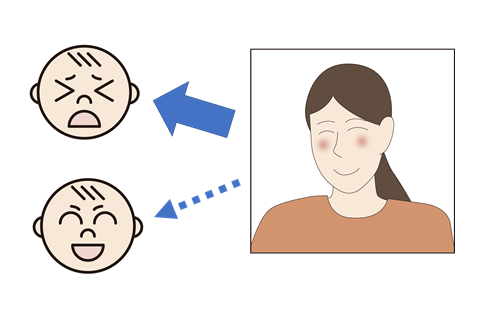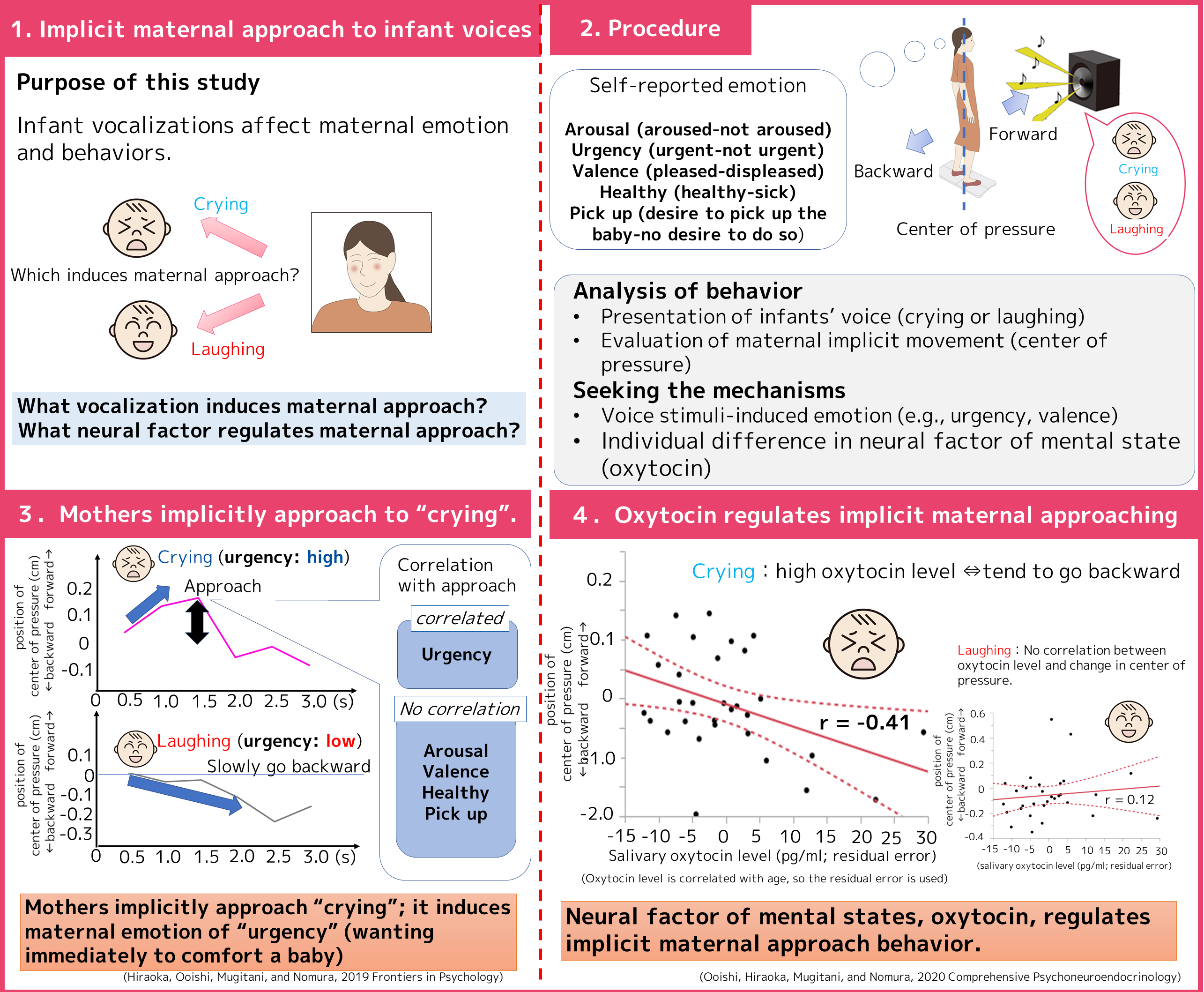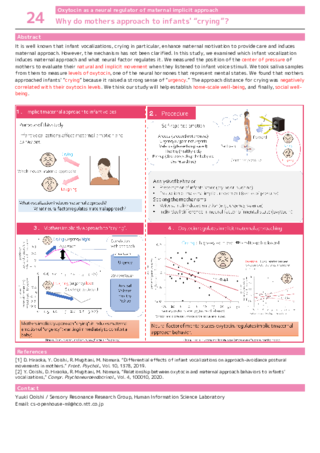| 24 |
Why do mothers approach to infants' “crying”?Oxytocin as a neural regulator of maternal implicit approach 
|
|---|
It is well known that infant vocalizations, crying in particular, enhance maternal motivation to provide care and induces maternal approach. However, the mechanism has not been clarified. In this study, we examined which infant vocalization induces maternal approach and what neural factor regulates it. We measured the position of the center of pressure of mothers to evaluate their natural and implicit movement when they listened to infant voice stimuli. We took saliva samples from them to measure levels of oxytocin, one of the neural hormones that represent mental states. We found that mothers approached infants' “crying” because it raised a strong sense of “urgency.” The approach distance for crying was negatively correlated with their oxytocin levels. We think our study will help establish home-scale well-being, and finally, social well-being.

[1] D. Hiraoka, Y. Ooishi, R. Mugitani, M. Nomura. “Differential effects of infant vocalizations on approach-avoidance postural movements in mothers.” Front. Psychol., Vol. 10, 1378, 2019.
[2] Y. Ooishi, D. Hiraoka, R. Mugitani, M. Nomura, “Relationship between oxytocin and maternal approach behaviors to infants’ vocalizations,” Compr. Psychoneuroendocrinol., Vol. 4, 100010, 2020.
Yuuki Ooishi / Sensory Resonance Research Group, Human Information Science Laboratory
Email: cs-openhouse-ml@hco.ntt.co.jp


